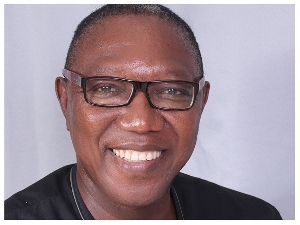Accra, Jan. 6, GNA - The National Democratic Congress (NDC) has a clear policy to appoint more women as ministers of state, chief executives of organisation, ambassadors and district chief executives when they take over power after the 2004 elections, a top party official said on Tuesday.
Mr. Rojo Mettle-Nunoo, Director of Communications at the Campaign Office of the NDC speaking to the GNA said the party had made provision to field more women for this years' parliamentary elections.
"The Women's Wing of the party is encouraging more women candidates to contest the parliamentary elections," he added, when asked by the GNA about plans to increase the percentage of women in the next Parliament. There were many calls preceding the 2000 elections and very recently, from civil society groups including the Federation of Women Lawyers for adequate and fair representation of women in positions of authority, especially in the political arena.
This has however yielded very little results as women are yet to be equally represented in areas of decision-making including governance.
In 1997, under ex-President J.J. Rawlings' administration, there were only 10 women ministers out of a total 71, and 19 women Members of Parliament (MP) out of 200.
A new government in 2001 did not see any significant change with 11 women ministers out of a total of 81 ministers and 18 women MPs out of the 200.
Mr. Mettle Nunoo said although the party was trying to ensure gender balance during the forthcoming elections, some constituencies were hostile to women being elected as MPs or entering into politics because of cultural perceptions of women in the communities.
He said there were possibilities that some of the current NDC women parliamentarians would not take part in this year's elections because of sheer age and the fact that some had served three terms as parliamentarians during the ten-year period of constitutional rule.
Mr. Mettle Nunoo, however, gave an assurance that those MPs who had served the interest of the party during their term as legislators would be taken good care of since most politicians did not always have a good pension to fall on once they left office.
Meanwhile, sources close to the New Patriotic Party indicated that the choice of women to contest the 2004 parliamentary elections would be left to the constituencies to decide since the party had no intention of imposing candidates on the people.












